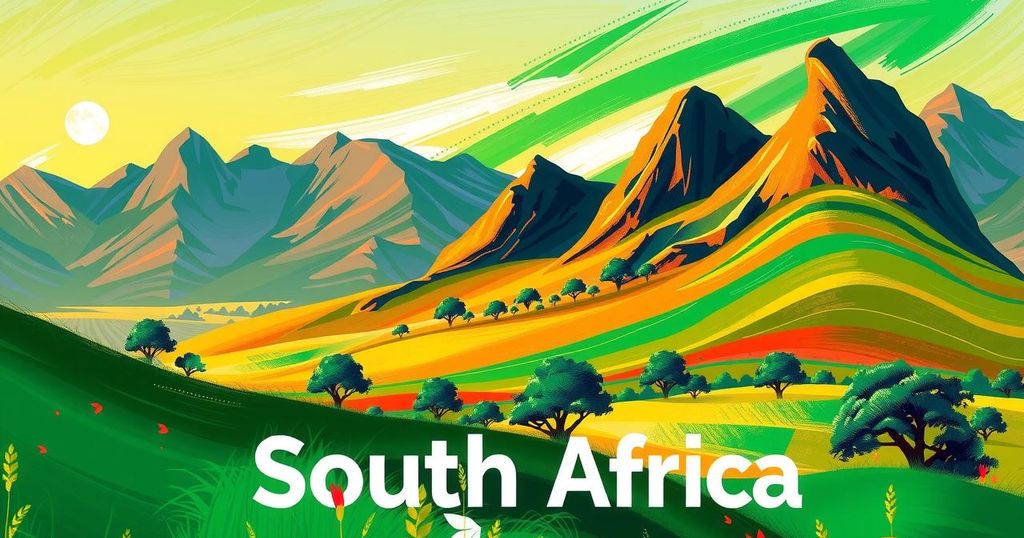Standing in Solidarity with South Africa Against Imperial Aggression

The article discusses the punitive measures against South Africa by Donald Trump for its support of Palestine and land reform. It compares South Africa’s predicament to Greece’s past, advocating for solidarity from the Global South and critical forces in the Global North. The necessity of collective resistance and the true implications of imperialism are emphasized, alongside the call to support South Africa’s rights and moral authority on the international stage.
The article highlights the backlash South Africa faces under Donald Trump’s executive order that ceases aid in response to its support for Palestine and land reform. This situation exemplifies a broader global struggle between imperial demands and countries asserting their sovereignty. South Africa’s courageous stance on Palestine and land reform represents a nexus of resistance against imperialism, which seeks to maintain the subjugation of the Global South.
The comparison to Greece’s past experiences with austerity underlines the severity of South Africa’s current predicaments. When faced with economic coercion, South Africa must now receive solidarity from both the Global South and progressive factions within the Global North, unlike Greece’s isolated plight in 2015. This solidarity is crucial as South Africa symbolizes a moral front in the ongoing fight for justice concerning Palestine.
By taking Israel to the International Court of Justice on genocide charges, South Africa is assuming significant moral leadership. However, its punitive treatment from the West exposes the contradiction between claims of supporting international law and actual imperial dictates that expect compliance over justice. South Africa’s moral authority, derived from its struggle against apartheid, resonates deeply, even among its domestic critics.
The article critiques the West’s self-proclaimed moral leadership, which is stated to be merely an illusion, masking historical and ongoing violence with a facade of benevolence. The bipartisan nature of U.S. imperial policies is emphasized, where both parties collectively prioritize the maintenance of Western hegemony through economic coercion, exemplified by Trump’s actions against South Africa.
To counteract such imperial tactics, the author advocates for authentic solidarity—material, practical, and collective resistance. Initiatives like the Hague Group signify progress, but more actions are required to uphold South Africa’s right to land reform. The empowerment narrative stresses that the biggest threat to the powerful is the belief in the powerlessness of the oppressed.
In conclusion, the article calls on international solidarity in support of South Africa’s struggle against imperial pressures. It raises an essential question: Should the global community allow South Africa to be vilified for its moral stance, or collectively uphold its rights in the pursuit of a more equitable international order? The choice made now may influence not only South Africa’s fate but also the overarching quest for democratic values worldwide.
In summary, the article underscores the imperative of standing in solidarity with South Africa amid external pressure resulting from its principled stances on Palestine and land reform. The plight of Greece serves as a cautionary tale, and the current global dynamics demand a unified response from nations that champion sovereignty and justice. Ultimately, the responsibility to support South Africa is a crucial part of fostering a just international order and should not be overlooked.
Original Source: mg.co.za







